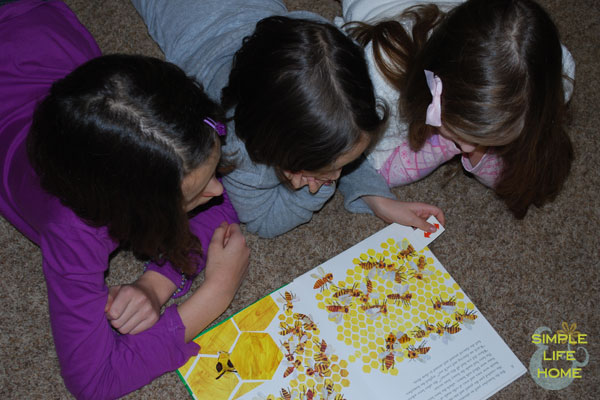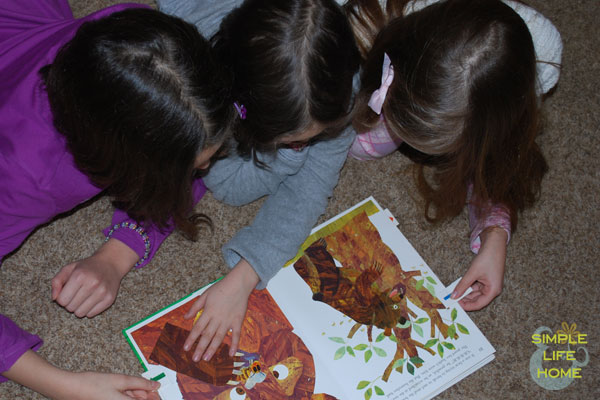
In honor of National Library Week, April 14 – 20, I’m sharing one of the best gifts we’ve ever given our children, a gift we’re still giving every day. It hasn’t cost us much money, but this one activity has done more to promote a love of learning in our home than any educational strategy we’ve employed.
The strategy? We read to them. Visit my home, and you’ll find frayed and chewed editions of much-loved board books, such as Pat the Bunny, Touch and Feel Baby Animals and Hand, Hand, Fingers, Thumb. Of course, now that the kids are older, the books have increased in length and complexity, but the idea is still the same. We gather together and enjoy the suspense of a mystery unfolding, envision a wide range of settings using our own imaginations, and delight in the sheer rhyme and rhythm of the words.
According to Jim Trelease, author of The Read-Aloud Handbook, the benefits of reading aloud to children are phenomenal. According to Trelease, parents’ reading to their children is the single-most important factor in children’s academic and professional success. Why? Because listening to a story in a warm, nurturing environment expands children’s vocabulary, increases their reading comprehension and improves their overall educational performance. Not only that, it’s just plain fun!
With those statistics in mind, there’s no better time than National Library Week to introduce a new tradition to your family, assuming you aren’t already reading aloud to your children every night. If you’re not sure what books to read, just check with your local librarian, who will be more than happy to point you toward a good yarn. In general, choose books that interest both you and your children. Don’t worry if the books include vocabulary beyond your children’s grade level. That’s the point. The more they hear a word in context, the better they’ll understand it when they encounter it on their own.

In addition, follow these tips to make your read-aloud time a success:
- Read together often, at least once a day.
- Don’t try to compete with the TV or electronic games. Completely unplug before picking up the book.
- Pause throughout the book to talk about words your children don’t understand and point out funny expressions or pictures.
- Don’t stop reading as your children get older. They need that time together just as much at 14 as they did at 14 months!
For more tips, visit my post here, where I share our family’s favorite read-aloud books. In the meantime, happy reading!
Note: This post may contain affiliate links. Please see my disclosure policy for more details. And thanks for stopping by!


